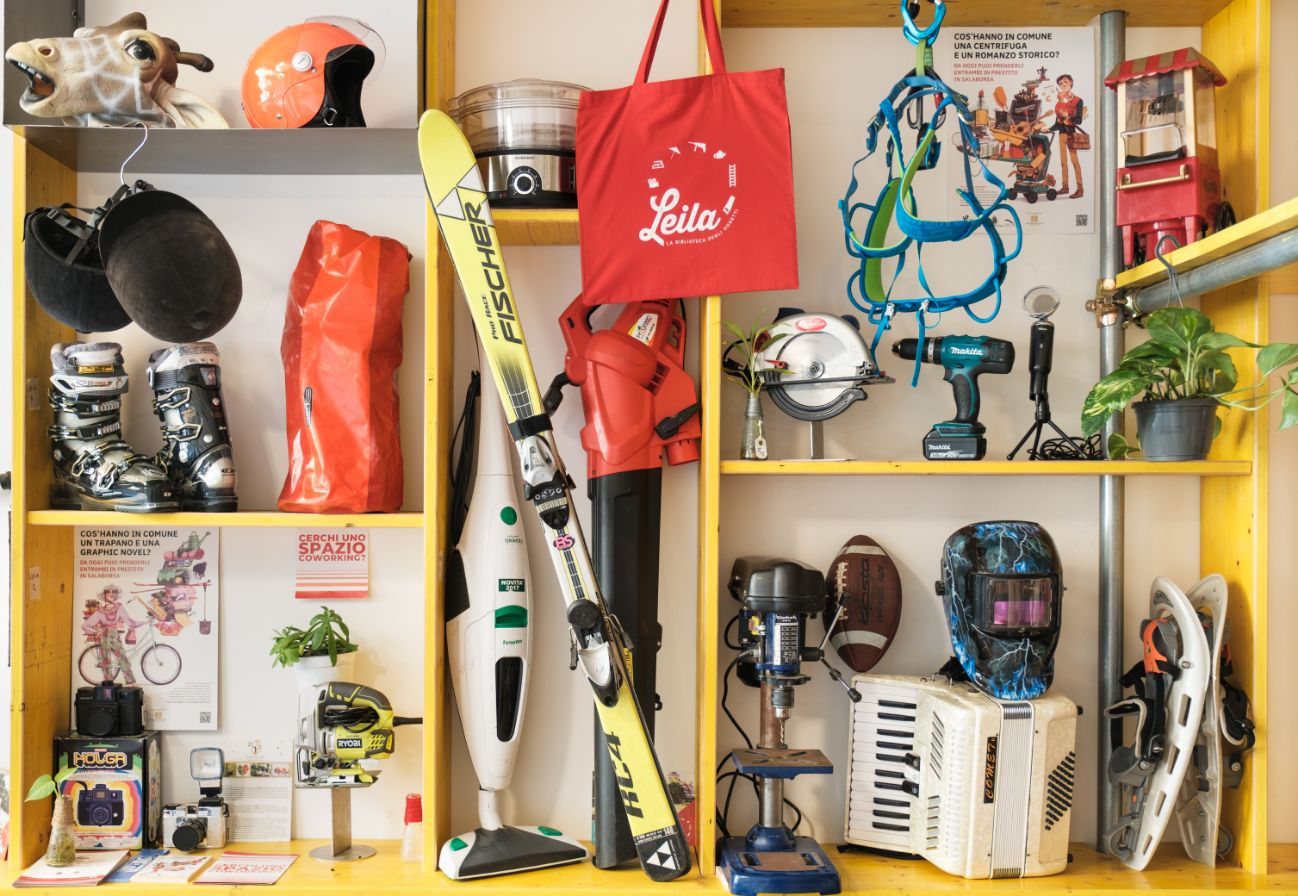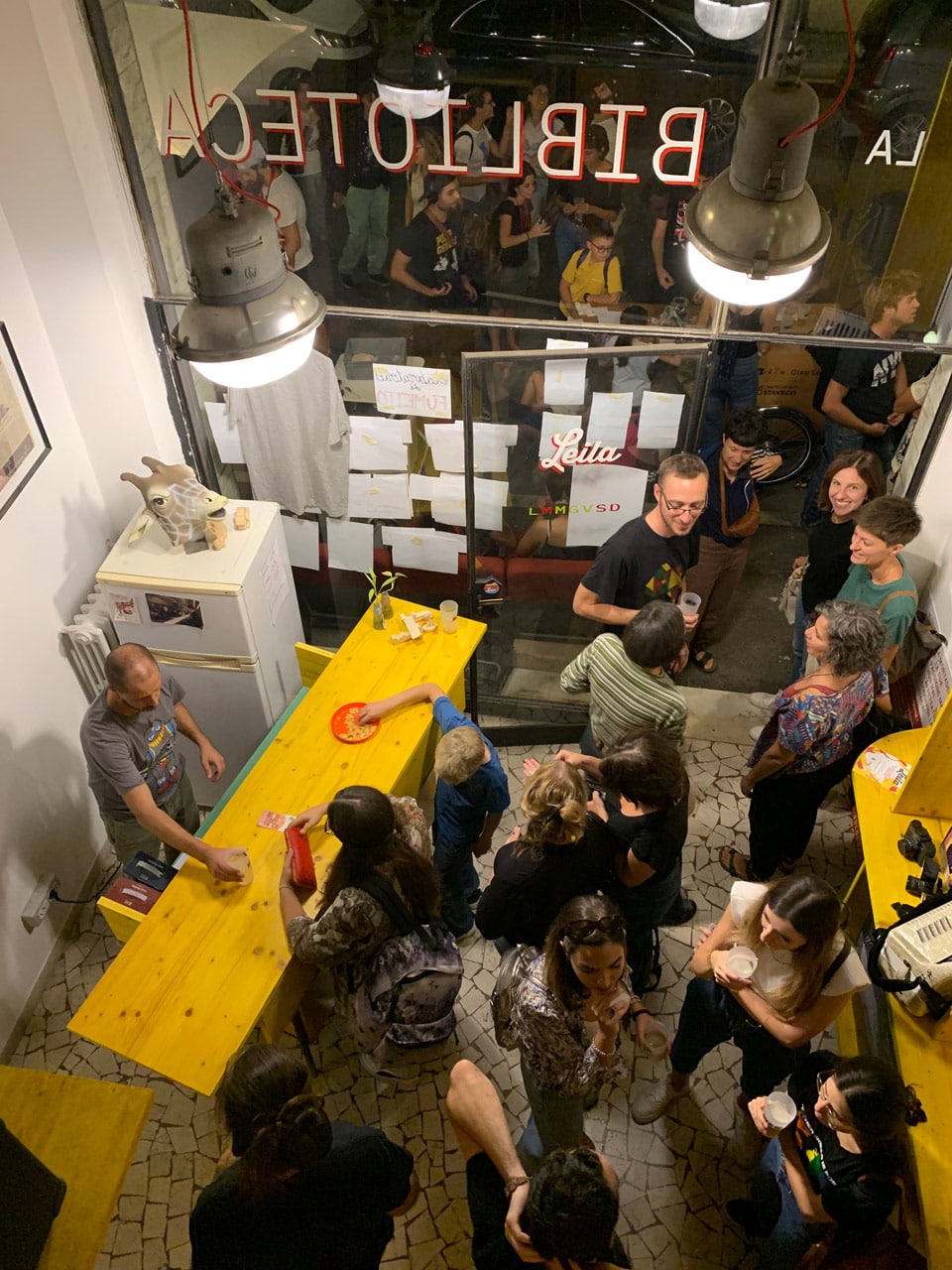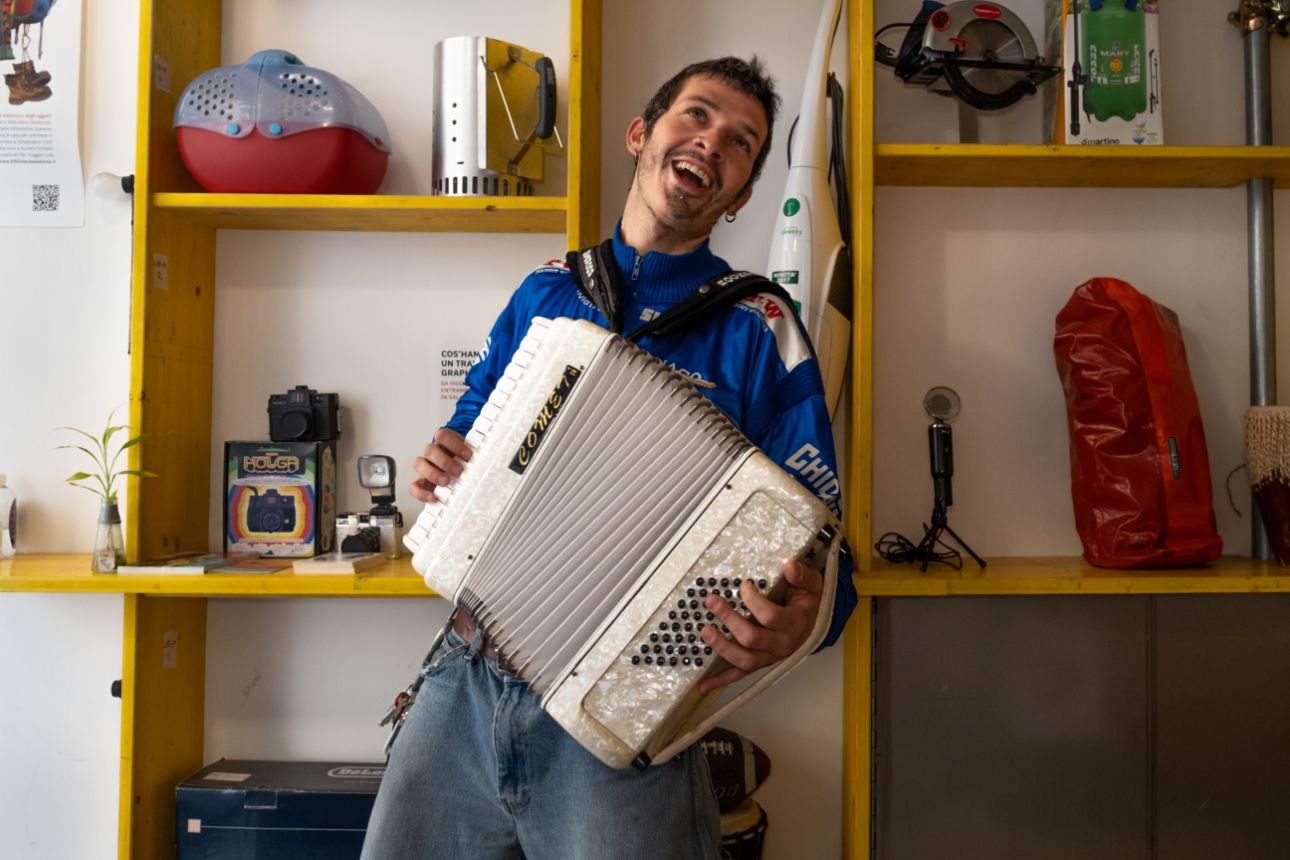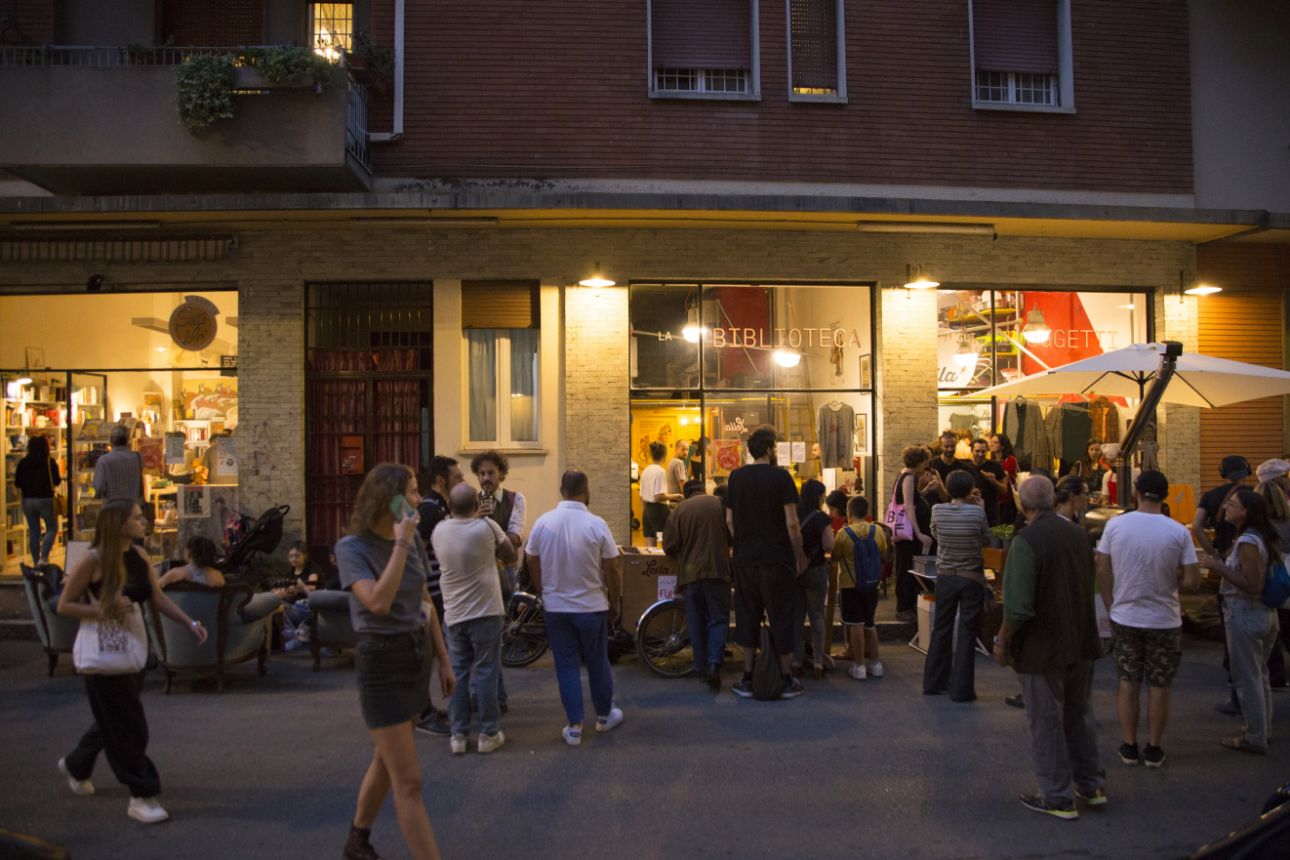Art and tactical urbanism transform grey spaces into vibrant meeting places, promoting collective wellbeing.

There are a great many singer-songwriters, poets and writers who have dedicated part of their work to Bologna.
Maybe because Bologna is a rather magical city that holds memories and traditions, where the walls echo with past eras. The streets resound with the immortal songs of Lucio Dalla, along with appetising wafts of the fragrance of delicious local food. It is right here - among the red bricks and historical porticos - that in 2016 Antonio Beraldi founded Leila, the object library.
Leila is a truly one-of-a-kind library: it doesn't lend books, but objects. It is the first in Italy, and one of 27 locations in Europe.
It is worth reflecting: how many things do we keep in forgotten corners of our homes?
Maybe that nail gun that was useful once to repair the garden fence. That tattoo gun that you thought was the key to your future profession, or that yoga mat. You've finished repairing the fence, becoming a tattoo artist is a dream long forgotten, and yoga really isn't for you. So you put it all away in the closet, along with thousands of other things.
In an age of unbridled consumerism, we often find ourselves trapped in a vicious circle of purchases.
Antonio has found the solution, with a project that is as ambitious as it is extremely simple. We met with him, and this is what he thinks.
"The idea came out of a very simple principle: we need to use objects, but not necessarily to own them!
Instead of books, Leila lends out a wide range of objects, such as drills, tents, musical instruments, car seats. Anyone can borrow what they need, as long as they also share something in return. The objects stay in the catalogue for one year. Then, the owner chooses whether to continue to share them with the community or to take them back home.
We offer people the opportunity to save money, not just because Leila allows them to use shared objects for free, but also because it offers them the chance to test a model before buying it. Or it allows them to find out whether a current passion is simply a passing fancy."

"We have created a service that is now indispensable here in Bologna. A project that has branched out a lot since 2016! In total, we have opened four Leila points in Bologna, and new initiatives have also been created, such as the LEILA SOCIAL CLUB: a sharing space where users make their skills available to help others repair items and do small DIY projects. Just by sharing, our knowledge multiplies.
For over a year we have been publishing "In viaggio con Leila" ("Travelling with Leila"), a monthly comic created by the skill and imagination of Federica Ferraro, a civil service volunteer who was so enamoured after a few hours spent with us that she came up with a comic."
"The biggest obstacle has been changing people's mentality with regard to the concept of ownership. We have worked hard to make people understand that sharing doesn't mean losing something, but instead having more! With Leila, the idea of ownership is transformed into a sustainable model. We save objects that are still in good condition, which would otherwise be thrown away.
This process doesn't just allow us to recycle, but also reduces our ecological footprint. Considering that a drill, for example, might be used for only 7 minutes over its lifespan, reusing it through Leila makes it more useful, extending its life cycle.
In an age when fast, impulse buying dominates, especially in big cities, Leila promotes slower, more reflective consumption. The innovation is in rediscovering and promoting simple, familiar tools, to have a positive impact on the environment."

"What I like most about Leila is the stories encapsulated in every object, as they pass from hand to hand, becoming enriched by new tales and meanings. I am happy every time someone returns to tell us how an item they borrowed helped them to complete a personal project or discover a new passion. I could listen for hours!
An anecdote that particularly struck me was from an American girl in the summer of 2021, who, returning to Italy where she teaches English, passed through Bologna especially to visit us. It was the first day we were open again after Covid. "I liked you so much that I decided to call my daughter Leila," she confessed.
At that moment, I was certain that Leila helps us to imagine a better world. Leila is not only an object library, but a true catalyst for optimism and community."
"We want Leila to become a model that is easy to replicate anywhere. We have created a platform made up of management software and a web app, to book an object directly from your device. This way it is simpler to open a Leila location in your own city.
We are also exploring collaborations with public and private organisations to expand our activities. Indeed, companies can also create sharing spaces to promote the culture of Leila.
For any community that wants to implement a circular economy idea, the first concept to base your practice on is use and reuse.

"I would like everyone to understand the power and value of sharing. Leila demonstrates that a small change in our approach to material goods can have a huge social and environmental impact. I invite everyone to try sharing, not only for themselves, but for the good of our community and the planet."
Images Credits:
© Leila
Art and tactical urbanism transform grey spaces into vibrant meeting places, promoting collective wellbeing.
In an era of change and great challenges, insurance policies must adapt, promoting sustainability and new lifestyles.
